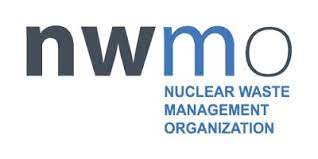Part 2 of 2 Parts (Please read Part 1 first)
Currently, two potential siting areas remain as potential hosts for the storage of spent nuclear fuel. The two prospective sites are the Wabigoon Lake-Ojibway Nation Ignace area in northwestern Ontario, and the Saugeen Ojibway Nation-South Bruce area in southern Ontario. Host communities for the planned deep geological repository will be part of decision making for plans to manage SMR-generated spent nuclear fuel in the repository. Through discussions about partnership agreements, the NWMO will work with potential host communities to develop and agree on a process for managing future changes to the type or volume of waste to be managed in the repository.
Canada’s SMR Action Plan was launched in December of 2020 by Natural Resources Canada. It brought together important enablers to seize the opportunity for SMR development, accelerate adoption and lock in the benefits of this important technology. In March of 2022, the government of Ontario, Saskatchewan, Alberta and New Brunswick agreed to a joint strategic plan outlining a path forward on SMRs.
A number of organizations from across Canada are participating on the SMR Action Plan. These organizations include provincial and territorial governments, municipalities, power utilities, educational and research institutions, industry associations and Indigenous-led organizations.
Canada’s nuclear sector is actively exploring SMRs. To date, two Canadian SMR projects have applied for licensing.
Ontario Power Generation (OPG) is working with GE Hitachi Nuclear Energy to develop and deploy the next generation SMR design at the Darlington new nuclear site in Ontario, using a boiling water reactor design. The project’s preliminary schedule is to complete construction of the reactor by 2028. Commercial operation will begin in 2029.
Global Power First is a joint venture between OPG and Ultra Safer Nuclear Corporation. The collaboration is working to construct and operate a different type of SMR called a micro-modular reactor. The work is being carried out at Chalk River Laboratories in Ontario. The site is owned by the Atomic Energy of Canada Limited. It is managed by Canadian Nuclear Laboratories. A preliminary application for a license to prepare the site was submitted in 2019. An environmental assessment for the project is underway.
The NWMO continues to actively engage with these and other SMR developers to ensure that any potential new types of spent nuclear fuel waste will meet stringent safety criteria for long-term management in a deep geological repository.
Safety will also be a priority for the transportation of spent nuclear fuel to the repository. Before any spent fuel is transported, the NWMO must meet stringent safety, security and emergency management regulations set by Transport Canada and the Canadian Nuclear Safety Commission, which ensure public safety during normal transport as well as accident conditions.
Transportation of spent nuclear fuel will not begin until the 2040s when the repository is operational. The NWMO recognizes that transportation is a subject of broad public interest. Planning for the project has already started. Transportation planning over the next twenty years will be a dynamic and collaborative activity. There will be opportunities for everyone interested to provide input, ask questions and raise concerns.
Dolatshahi said, “In delivering on Canada’s plan, the NWMO holds safety as our highest priority. It reflects the best in internationally-accepted design, while incorporating the flexibility to accommodate waste from future nuclear reactor designs for years to come.”
